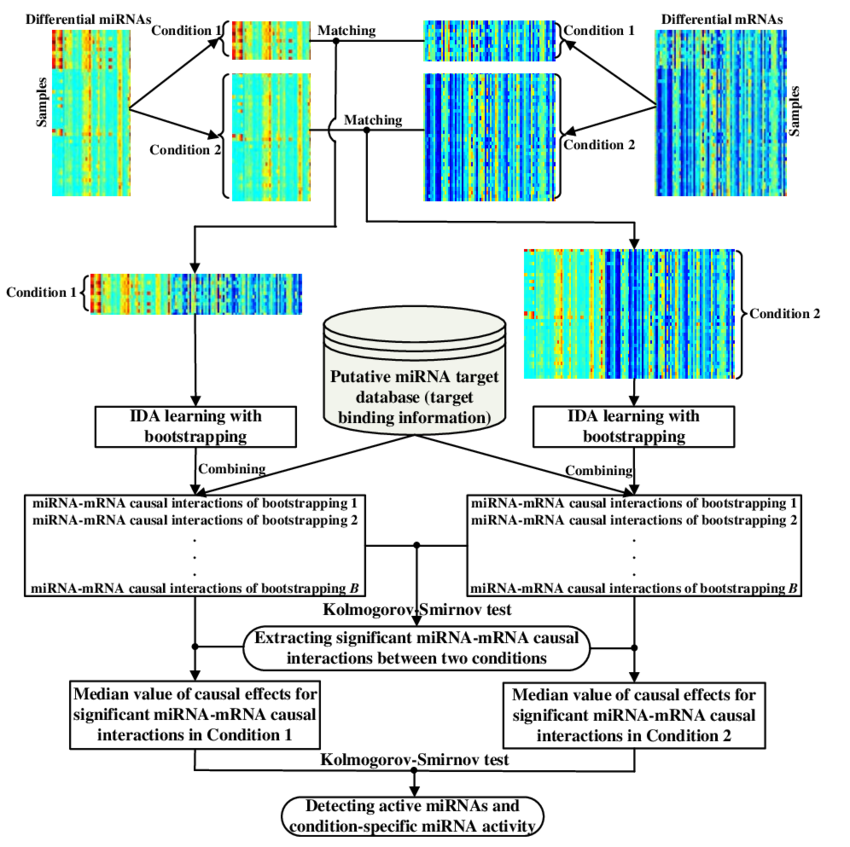 A flowchart of condition specific miRNA activity
A flowchart of condition specific miRNA activity
 A flowchart of condition specific miRNA activity
A flowchart of condition specific miRNA activity
MOTIVATION: MicroRNAs (miRNAs) play crucial roles in complex cellular networks by binding to the messenger RNAs (mRNAs) of protein coding genes. It has been found that miRNA regulation is often condition-specific. A number of computational approaches have been developed to identify miRNA activity specific to a condition of interest using gene expression data. However, most of the methods only use the data in a single condition, and thus, the activity discovered may not be unique to the condition of interest. Additionally, these methods are based on statistical associations between the gene expression levels of miRNAs and mRNAs, so they may not be able to reveal real gene regulatory relationships, which are causal relationships. RESULTS: We propose a novel method to infer condition-specific miRNA activity by considering (i) the difference between the regulatory behavior that an miRNA has in the condition of interest and its behavior in the other conditions; (ii) the causal semantics of miRNA-mRNA relationships. The method is applied to the epithelial-mesenchymal transition (EMT) and multi-class cancer (MCC) datasets. The validation by the results of transfection experiments shows that our approach is effective in discovering significant miRNA-mRNA interactions. Functional and pathway analysis and literature validation indicate that the identified active miRNAs are closely associated with the specific biological processes, diseases and pathways. More detailed analysis of the activity of the active miRNAs implies that some active miRNAs show different regulation types in different conditions, but some have the same regulation types and their activity only differs in different conditions in the strengths of regulation.